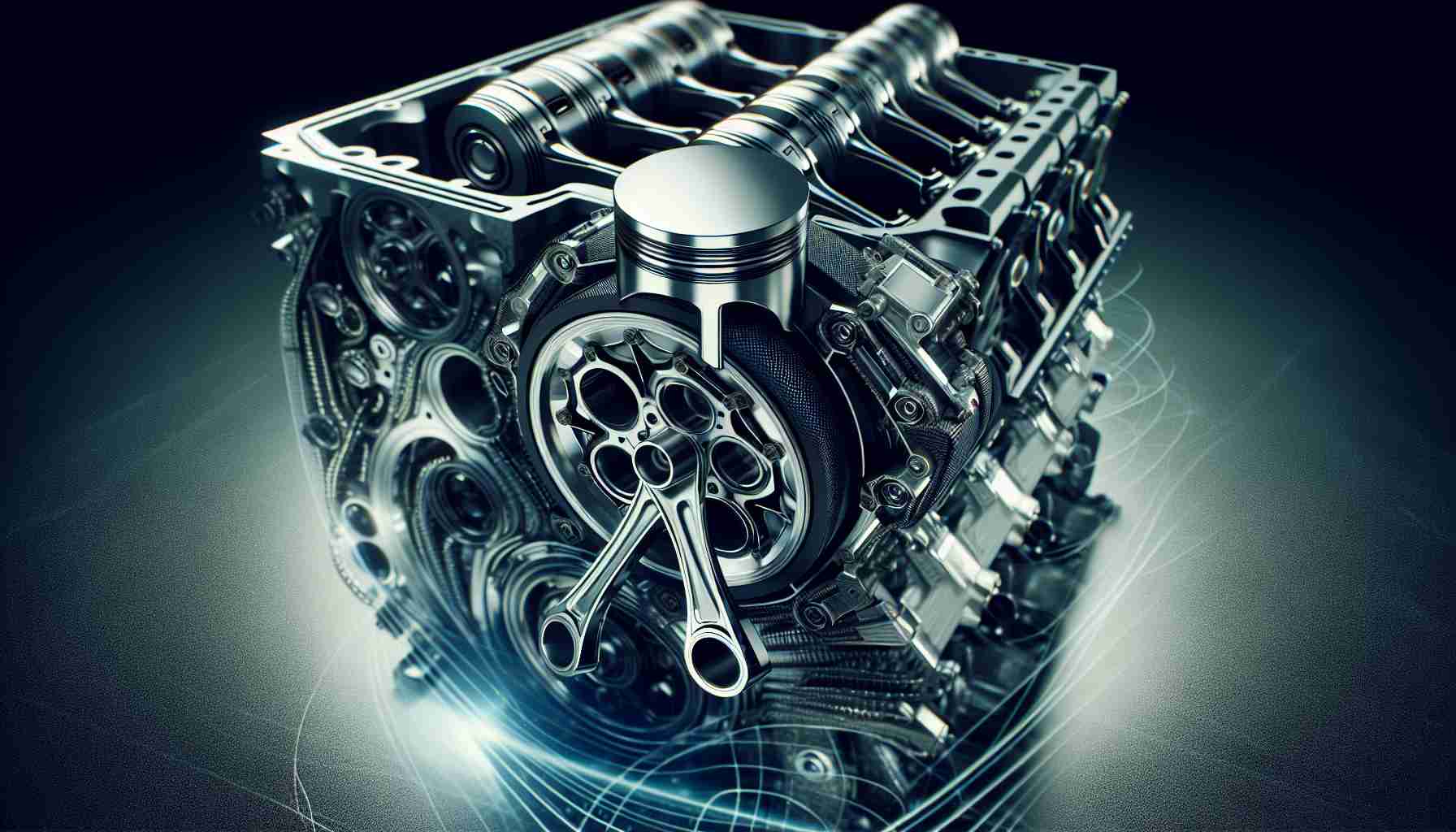In the rapidly evolving world of automotive technology, pistons, a crucial component of internal combustion engines, are set to receive a revolutionary upgrade. As automakers strive for greater efficiency and performance, cutting-edge technologies are being developed to reinvent how pistons operate, potentially transforming the landscape of vehicle engineering.
Hybrid Materials for Enhanced Performance
Traditionally made from aluminum or cast iron, new pistons are being crafted from hybrid materials that offer unprecedented strength and durability without sacrificing weight. These advanced materials can withstand higher pressures and temperatures, optimizing engine performance and efficiency. This material innovation not only promises longer engine lifespans but also contributes to eco-friendly manufacturing processes.
3D Printing: Customization at its Best
3D printing technology is making waves in piston manufacturing. Customized pistons tailored to specific engine requirements can now be created with precision, allowing for better performance fine-tuning. This level of customization offers significant benefits for both mass-produced vehicles and specialized racing engines, leading to a more personalized driving experience.
Smart Pistons: The Next Frontier
Another thrilling development is the advent of “smart pistons,” embedded with sensors to monitor real-time engine conditions. These sensors provide valuable data for predictive maintenance, enhancing vehicle safety and reliability. By alerting drivers to potential issues before they become critical, smart pistons represent the fusion of traditional mechanics with modern digital intelligence.
With these exciting advancements, pistons are no longer just a basic engine component; they are at the forefront of automotive innovation, poised to drive the future of transportation to new heights.
Revolutionizing Pistons: The Environmental and Societal Impact
In the fast-paced realm of automotive innovation, pistons, a vital element of internal combustion engines, are undergoing a groundbreaking transformation. This technological leap, focused on efficiency and performance, is poised to reshape the future of vehicle engineering with significant implications for the environment, economy, and humanity as a whole.
Environmental Impact:
The shift to hybrid materials marks a pivotal move toward eco-friendlier manufacturing processes. Traditional materials like aluminum and cast iron involve energy-intensive production methods that contribute to carbon emissions. In contrast, hybrid materials are engineered for improved durability and to withstand greater pressures and temperatures, optimizing engine efficiency. This leap in durability not only prolongs engine life but also reduces the frequency of replacements, thus decreasing waste. As transportation accounts for a sizeable portion of global emissions, enhancements in piston technology could lead to more fuel-efficient engines, thus reducing the carbon footprint of vehicles worldwide. This represents a critical step towards mitigating climate change and preserving natural resources for future generations.
Economic Implications:
Investment in advanced materials and 3D printing technology sets the stage for economic shifts in the automotive industry. Hybrid materials promise longer-lasting pistons, potentially decreasing manufacturing costs over time. While the initial investment in these technologies could be high, the long-term economic benefits include reduced material usage and waste, leading to a more sustainable cycle of production and consumption. The surge in demand for 3D printed components may also bolster the job market, creating new roles in tech-savvy sectors while encouraging developed economies to adapt their industrial strategies to remain competitive.
Societal and Human Advancements:
The introduction of smart pistons with embedded sensors represents a merging of mechanical engineering with digital intelligence. This innovation offers substantial safety benefits, as real-time monitoring of engine conditions allows for predictive maintenance. The ability to predict and address potential engine issues before they escalate enhances vehicle safety and reliability, safeguarding drivers and passengers. Furthermore, by driving down maintenance costs and improving vehicle longevity, these advancements can make transportation more accessible and affordable to broader segments of the population, fostering greater mobility and connectivity.
Connections to the Future of Humanity:
As society stands at the cusp of a transportation renaissance, the evolution of piston technology epitomizes the collaboration between engineering prowess and environmental stewardship. By embracing hybrid materials, 3D printing, and smart technologies, humanity takes a step towards sustainable living without compromising on innovation and progress. These advancements hold the potential to inspire further technological breakthroughs, influencing future transportation systems like electric and autonomous vehicles. Ultimately, the continuous reinvention of essential components like pistons not only propels the automotive industry forward but also aligns with broader goals of sustainability and efficiency, paving the way for a resilient and advanced future for humanity.
Revolutionary Pistons: The Future of Automotive Innovation
The automotive industry is on the brink of a piston revolution, with groundbreaking innovations set to redefine both efficiency and performance in vehicle engineering. As car manufacturers push the envelope of technology, these advances promise to not only enhance engine capabilities but also contribute sustainably to the industry’s future.
Pros and Cons of Hybrid Materials
Pros
1. Enhanced Durability: Hybrid materials used in pistons boast superior strength, resisting wear and tear, which leads to longer engine lifespans.
2. Lightweight Design: Despite their strength, these materials are lightweight, which improves fuel efficiency and overall vehicle performance.
3. Eco-Friendly Manufacturing: The production processes for these new materials are more sustainable, reducing the environmental footprint.
Cons
1. Higher Costs: The advanced materials may lead to increased manufacturing costs, potentially raising vehicle prices.
2. Complex Repair Needs: Repairing or replacing advanced material pistons can require specialized skills and tools, possibly leading to higher maintenance costs.
3D Printing Innovation: Precision and Personalization
The integration of 3D printing in piston manufacturing is a game-changer. This technology allows for unparalleled customization, enabling manufacturers to design pistons tailored specifically to individual engine requirements. The result is a significant enhancement in engine efficiency, which translates to a more refined and personalized driving experience.
Smart Pistons: Merging Mechanics and Intelligence
Smart pistons exemplify the fusion of technology and traditional engine components. By embedding sensors within pistons, these intelligent components offer real-time monitoring of engine conditions. This innovation not only improves vehicle safety by enabling predictive maintenance but also extends the lifespan of the engine by preventing potential issues before they arise.
Future Predictions: The Road Ahead
The advancements in piston technology are set to pave the way for significant developments in automotive engineering. As manufacturers continue to adopt these innovations, we can expect more fuel-efficient and environmentally friendly vehicles. The push towards “smart” vehicles will only accelerate, with pistons playing a critical role in realizing this futuristic vision.
Market Trends and Insights
The trend towards advanced piston technologies reflects a broader movement within the automotive industry towards smart and sustainable solutions. The market is increasingly favoring vehicles that not only perform efficiently but also incorporate innovations that align with ecological and digital advancements.
By embracing hybrid materials, 3D printing, and smart technologies, the automotive industry is poised to transform engines into not only responsive and robust components but also intelligent systems ready to meet the challenges of tomorrow’s roads.
Tesla, a leader in automotive innovation, is one example of a company that continuously pushes the boundaries of what’s possible in vehicle technology, setting a benchmark for future developments in piston and engine design.








